Bringing a small dog into your family can be a joyful experience, especially for children. However, choosing the right breed requires careful consideration of various factors such as temperament, care needs, and compatibility with kids. In this guide, we will explore the best small dog breeds for kids and provide detailed insights into what makes these breeds perfect for families.
Benefits of Small Dogs for Families
Small dogs offer numerous benefits for families with children. Their size makes them easier to manage and less intimidating for young kids. They are often more adaptable to living in smaller spaces, such as apartments. Small dog breeds are known for their friendly and playful nature, which makes them great companions for children. Additionally, their lower maintenance needs in terms of exercise and grooming can be a plus for busy families.
Characteristics of Kid-Friendly Breeds
When selecting a small dog breed for your family, it’s essential to consider characteristics that ensure a harmonious relationship between the dog and your children. Kid-friendly breeds typically have the following traits:
- Temperament: They are generally gentle, patient, and affectionate.
- Energy Level: They have moderate energy levels, making them playful but not overly hyperactive.
- Care Requirements: They require minimal grooming and are easy to train.
- Size: They are small enough to be safe around young children and easy to handle.
Best Small Dog Breeds for Kids
Now, let’s delve into some of the best small dog breeds for kids, examining their unique characteristics and why they make excellent family pets.
Beagle
Beagles are known for their friendly and curious nature. They are energetic, which makes them great playmates for active kids. Their even temper and loving demeanor make them a favorite among families.

- Temperament: Friendly, curious, and merry.
- Care: Moderate grooming needs, regular exercise.
- Compatibility: Excellent with children, enjoys outdoor activities.
Cavalier King Charles Spaniel
This breed is renowned for its affectionate and gentle nature. Cavaliers are adaptable and get along well with children, making them a wonderful addition to any family.
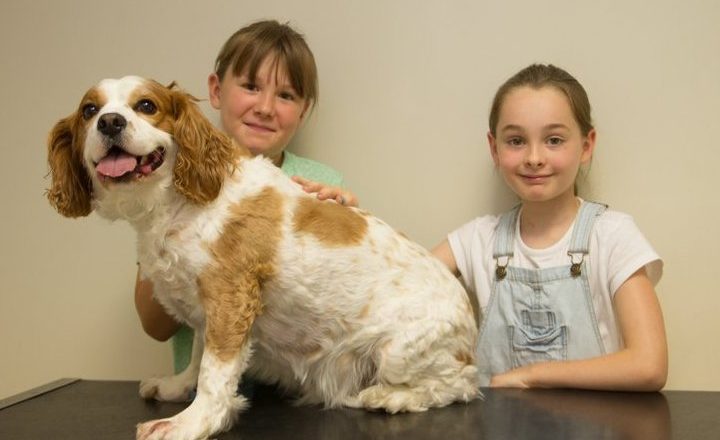
- Temperament: Affectionate, gentle, and playful.
- Care: Regular grooming required, moderate exercise.
- Compatibility: Great with kids, enjoys cuddling and companionship.
Boston Terrier
Boston Terriers are known for their lively and intelligent personalities. They are relatively low-maintenance and are known to form strong bonds with family members, including children.
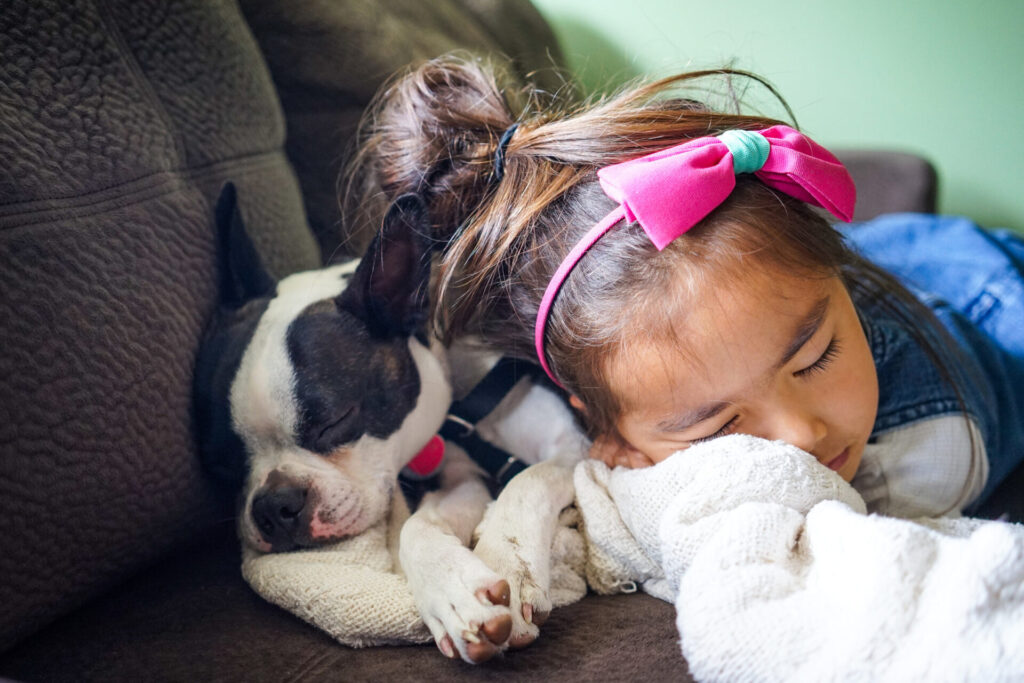
- Temperament: Lively, intelligent, and affectionate.
- Care: Low grooming needs, regular exercise.
- Compatibility: Very good with children, loves to play.
Bichon Frise
The Bichon Frise is a cheerful and playful breed that thrives on human companionship. Their friendly and gentle nature makes them excellent companions for children.
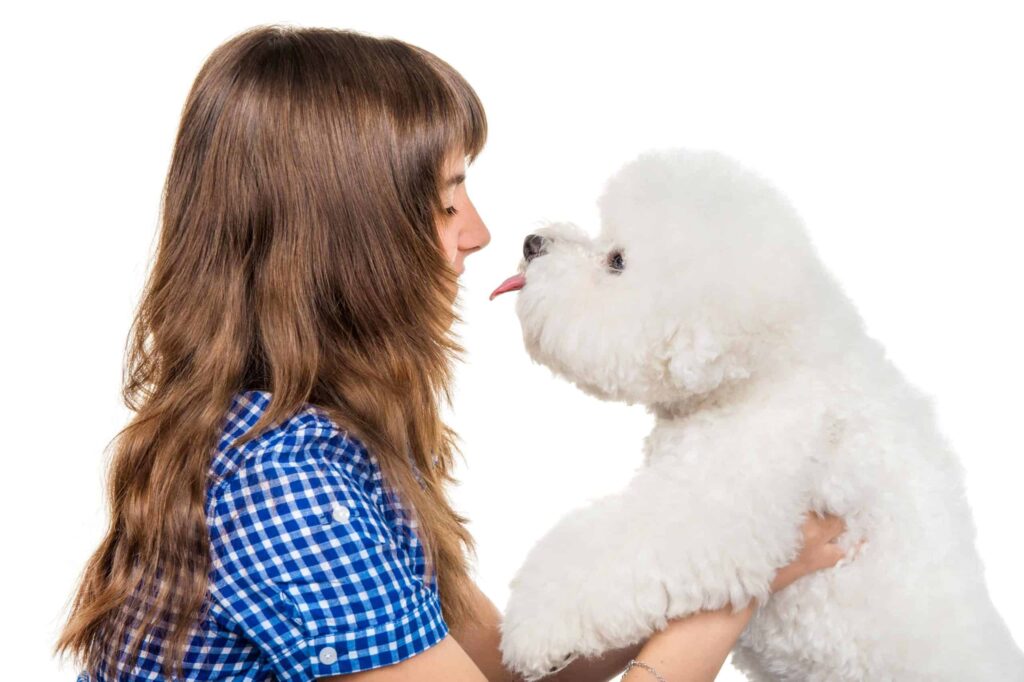
- Temperament: Cheerful, playful, and gentle.
- Care: Regular grooming, moderate exercise.
- Compatibility: Excellent with kids, enjoys playtime and cuddles.
French Bulldog
French Bulldogs are known for their easygoing and affectionate personalities. They are great for families due to their sturdy build and gentle nature.
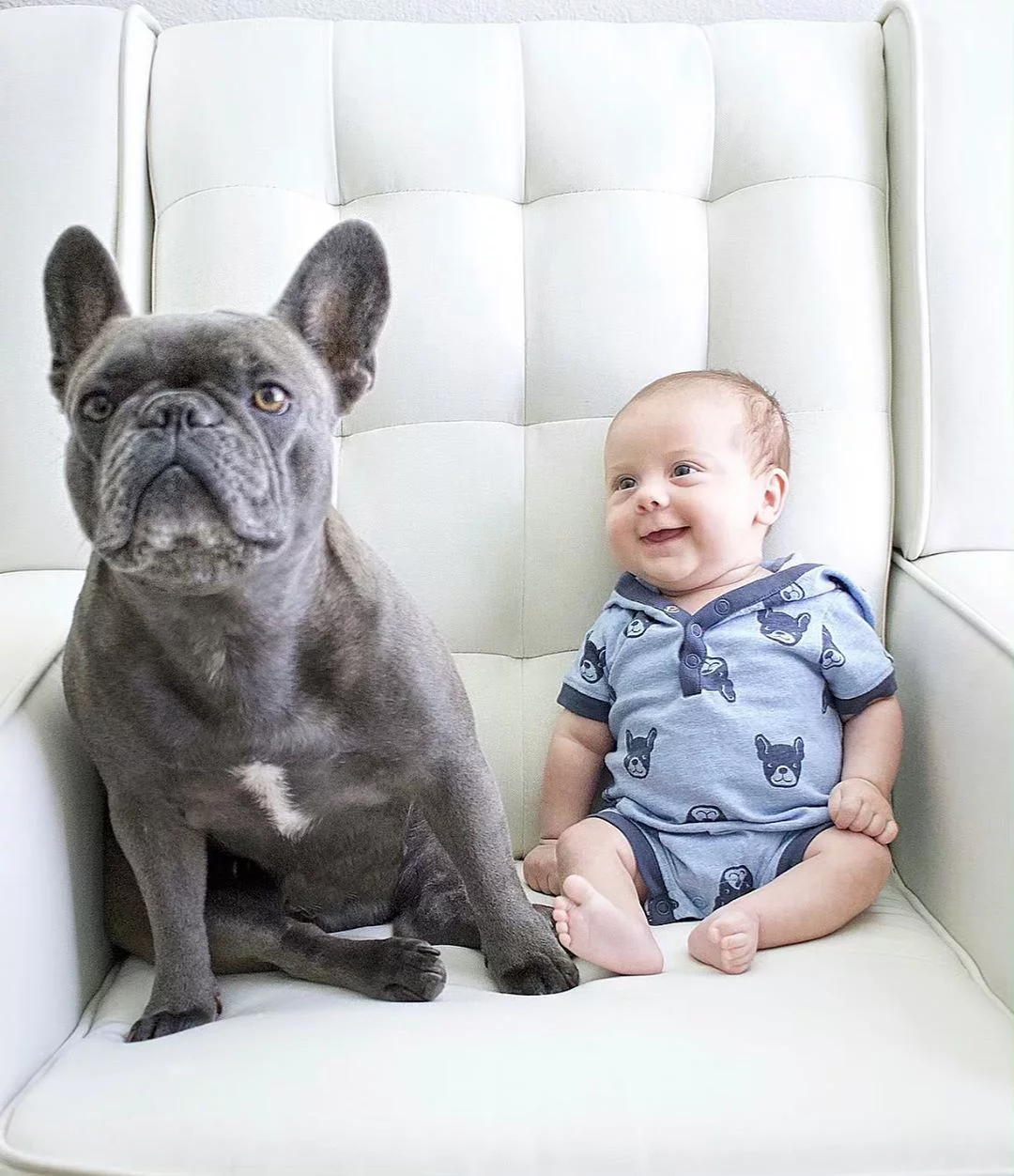
- Temperament: Easygoing, affectionate, and playful.
- Care: Low grooming needs, minimal exercise.
- Compatibility: Good with children, enjoys companionship.
Havanese
Havanese dogs are friendly, intelligent, and outgoing. They are known for their affectionate nature and adaptability, making them great for families with children.
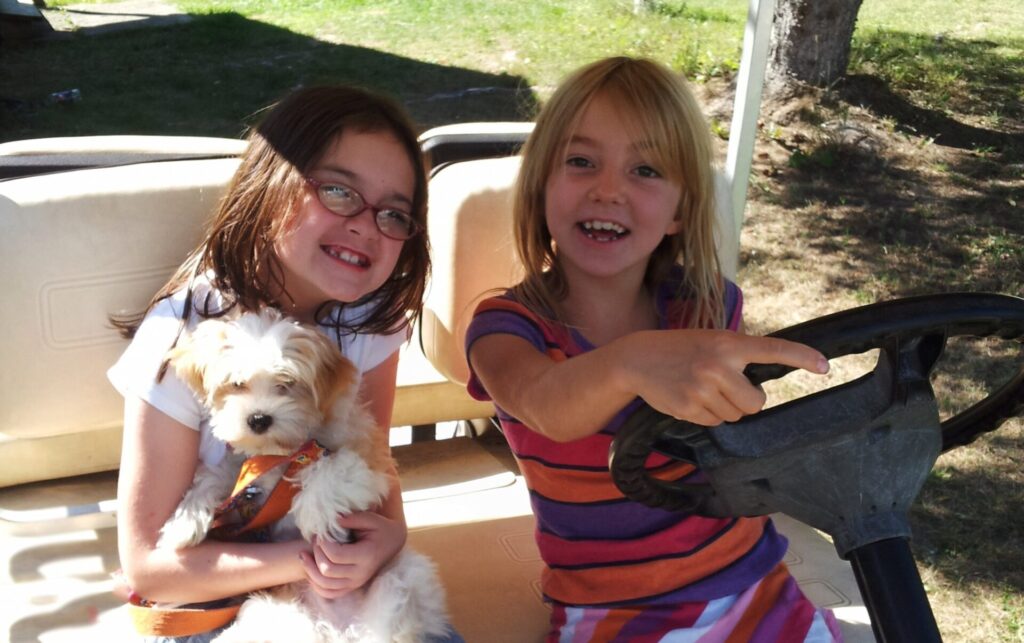
- Temperament: Friendly, intelligent, and outgoing.
- Care: Regular grooming, moderate exercise.
- Compatibility: Excellent with kids, loves interaction and play.
Pug
Pugs are charming and mischievous with a loving disposition. They are sturdy and sociable, making them great companions for kids.
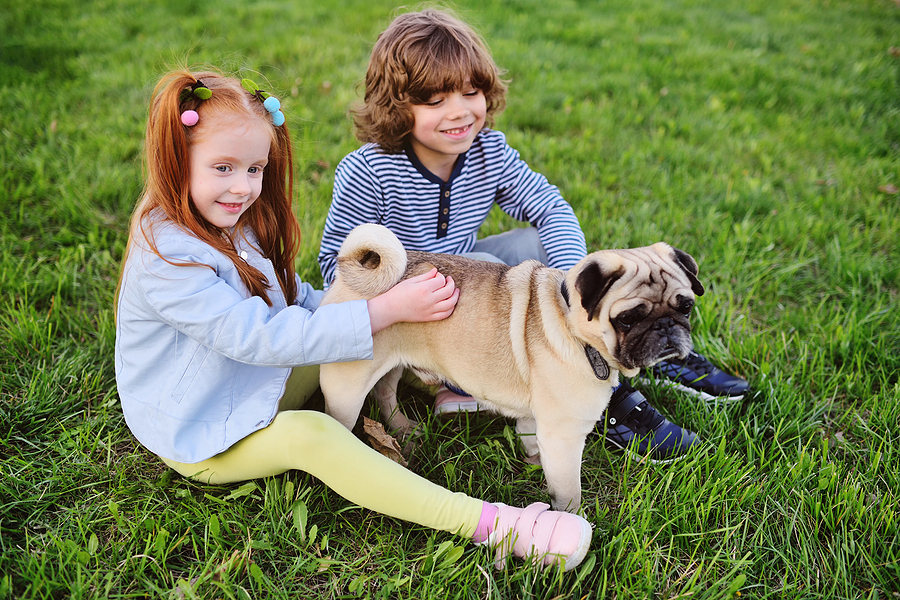
- Temperament: Charming, mischievous, and loving.
- Care: Low grooming needs, regular exercise.
- Compatibility: Great with children, enjoys being part of the family.
Shih Tzu
Shih Tzus are known for their friendly and affectionate nature. They are great companions for children due to their gentle and playful personality.
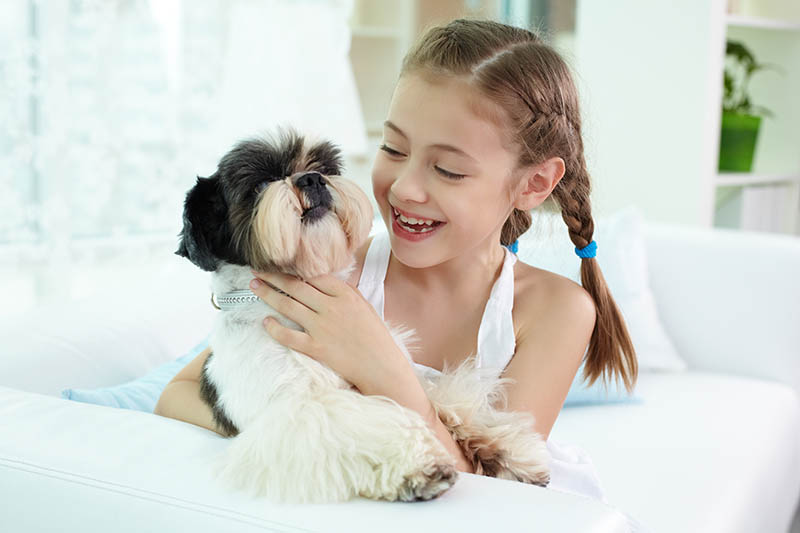
- Temperament: Friendly, affectionate, and playful.
- Care: Regular grooming, moderate exercise.
- Compatibility: Very good with kids, loves to play and cuddle.
Miniature Schnauzer
Miniature Schnauzers are energetic, friendly, and intelligent. They are known for their loyalty and make excellent family pets.
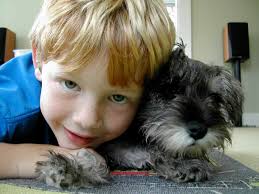
- Temperament: Energetic, friendly, and intelligent.
- Care: Regular grooming, moderate exercise.
- Compatibility: Great with children, enjoys activities and play.
Sheltie (Shetland Sheepdog)
Shelties are known for their intelligence and gentle nature. They are great with kids and thrive in family environments.
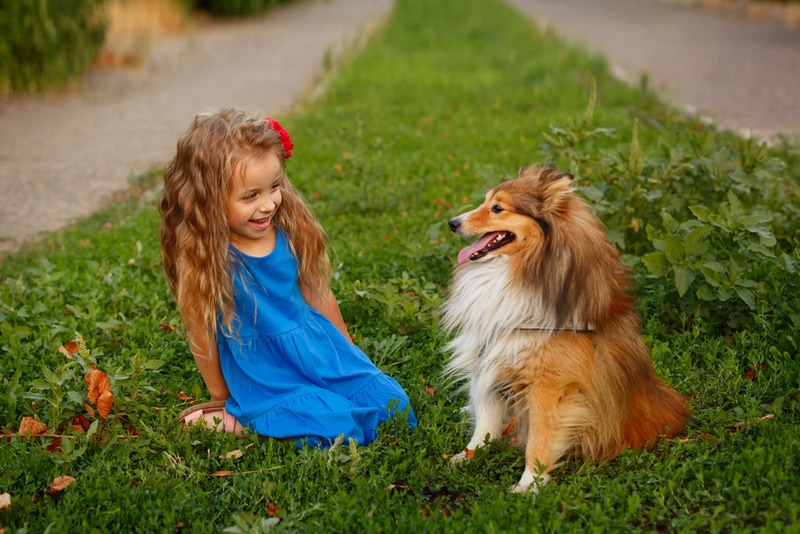
- Temperament: Intelligent, gentle, and playful.
- Care: Regular grooming, ample exercise.
- Compatibility: Excellent with children, enjoys family activities.
Mixed Breeds
Mixed breeds can also make excellent family pets. They often combine the best traits of their parent breeds, leading to unique and adaptable companions.
- Benefits: Often healthier, unique temperaments.
- Considerations: Unknown genetic traits, varying care needs.
How to Introduce a Small Dog to Kids
Introducing a new dog to your children requires patience and planning. Here are some steps to ensure a smooth introduction:
- Prepare Your Home: Create a safe and comfortable space for the dog.
- Teach Your Kids: Educate your children on how to approach and interact with the dog gently.
- Supervise Initial Interactions: Always supervise the first few interactions to ensure safety.
- Establish Routines: Set feeding, walking, and playtime routines.
Training Tips for Small Dogs and Kids
Training is crucial for a harmonious relationship between your dog and kids. Here are some tips:
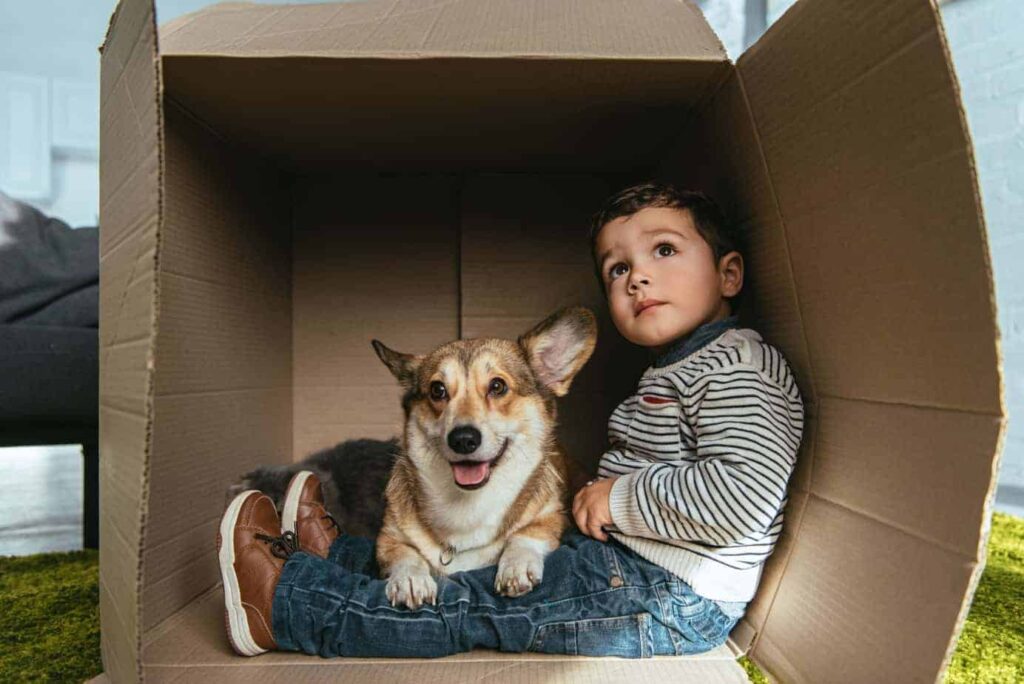
- Basic Commands: Teach basic commands like sit, stay, and come.
- Positive Reinforcement: Use treats and praise to encourage good behavior.
- Involve Kids: Let your children participate in training to build a bond.
- Consistency: Be consistent with commands and rules.
Exercise Needs of Small Dogs
Exercise is essential for the health and well-being of small dogs. Ensure they get enough physical and mental stimulation:
- Daily Walks: Aim for at least one walk per day.
- Playtime: Engage in interactive play like fetch or tug-of-war.
- Mental Stimulation: Provide puzzle toys and training sessions.
Grooming Needs of Small Dogs
Grooming keeps your dog healthy and looking their best. Regular grooming includes:
- Brushing: Brush your dog’s coat to prevent matting and shedding.
- Bathing: Bathe your dog as needed, typically every few weeks.
- Nail Trimming: Trim your dog’s nails regularly to prevent overgrowth.
- Ear Cleaning: Check and clean your dog’s ears to prevent infections.
Health Considerations for Small Dogs
Small dogs can be prone to specific health issues. Preventive care is essential:
- Regular Vet Visits: Schedule regular check-ups with your vet.
- Vaccinations: Keep vaccinations up to date.
- Diet: Provide a balanced diet to maintain a healthy weight.
- Exercise: Ensure regular exercise to prevent obesity.
Safety Tips for Kids and Small Dogs
Ensuring safe interactions between your kids and dog is crucial:
- Supervision: Always supervise interactions between young children and dogs.
- Teach Boundaries: Teach your kids to respect the dog’s space.
- Gentle Handling: Instruct kids on gentle handling and avoiding rough play.
- Safe Spaces: Provide a safe space for your dog to retreat when needed.
Creating a Dog-Friendly Home Environment
Creating a welcoming environment for your new dog involves:
- Safe Spaces: Set up a comfortable bed and safe area for your dog.
- Toys and Enrichment: Provide toys and activities to keep your dog entertained.
- Feeding Area: Designate a quiet spot for feeding.
Traveling with Small Dogs and Kids
Traveling with your dog can be enjoyable with proper planning:

- Car Travel: Use a secure crate or harness for car travel.
- Accommodations: Ensure your destination is pet-friendly.
- Preparation: Bring necessary supplies like food, water, and toys.
Choosing the Right Small Dog for Your Family
Selecting the right breed involves assessing your family’s lifestyle:
- Energy Levels: Match the dog’s energy level with your family’s activity level.
- Space: Consider your living space and whether it’s suitable for a small dog.
- Time Commitment: Ensure you have time for training, exercise, and care.
Adopting a Small Dog
Adoption is a great option for finding a family pet:
- Adoption vs. Buying: Consider the benefits of adopting from a shelter or rescue.
- Finding a Shelter: Research reputable shelters and rescues.
- Benefits: Adoption often includes vaccinations, spaying/neutering, and microchipping.
Preparing for Your New Small Dog
Preparing for a new dog involves:
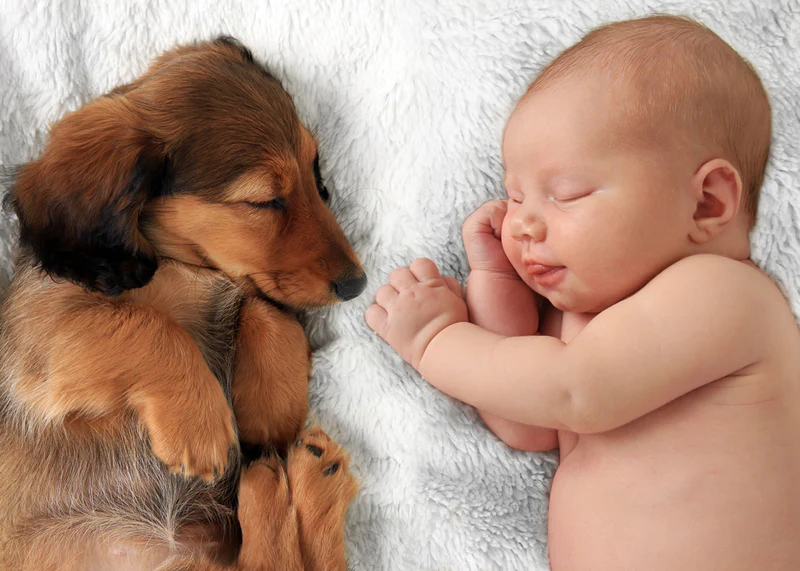
- Shopping: Buy essentials like food, bowls, a bed, toys, and grooming supplies.
- Home Setup: Prepare your home with designated areas for feeding, sleeping, and playing.
- First Days: Establish routines and introduce the dog gradually to their new environment.
Feeding Small Dogs
Proper nutrition is vital for your dog’s health:
- Nutritional Needs: Choose high-quality dog food that meets your dog’s dietary needs.
- Feeding Schedule: Establish a consistent feeding schedule.
- Treats: Use treats in moderation, primarily for training and rewards.
The Emotional Benefits of Having a Dog
Dogs provide emotional benefits for children and families:
- Emotional Development: Dogs can help children develop empathy and responsibility.
- Family Bonding: Owning a dog can strengthen family bonds through shared activities.
- Companionship: Dogs offer unconditional love and companionship.
Real-Life Stories of Families and Their Small Dogs
Hearing from other families can provide valuable insights:
- Testimonials: Read about families’ experiences with their small dogs.
- Success Stories: Learn how small dogs have positively impacted families.
FAQs
What are the best small dog breeds for kids?
Breeds like Beagles, Cavaliers, Boston Terriers, and Bichon Frises are known for their kid-friendly nature.
How do I introduce a new small dog to my kids?
Prepare your home, educate your children on gentle handling, and supervise initial interactions.
What are the exercise needs of small dogs?
Small dogs need daily walks, playtime, and mental stimulation to stay healthy and happy.
How do I groom my small dog?
Regular brushing, bathing, nail trimming, and ear cleaning are essential grooming practices.
What should I consider when choosing a small dog breed for my family?
Consider factors like temperament, energy levels, care needs, and compatibility with your family’s lifestyle.
What are the benefits of adopting a small dog?
Adopting a dog from a shelter can save a life and often includes vaccinations, spaying/neutering, and microchipping.
Conclusion
Choosing the best small dog breed for your family is a rewarding decision that brings joy and companionship into your home. By considering factors such as temperament, care needs, and compatibility with children, you can find the perfect furry friend for your family. Remember, adopting a dog is a lifelong commitment that requires love, patience, and responsible pet ownership.





















